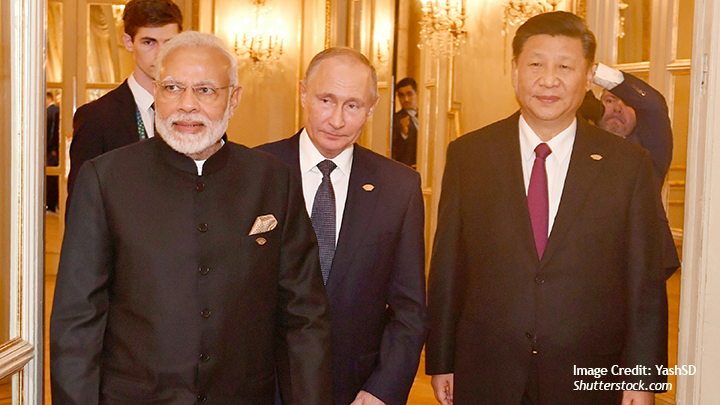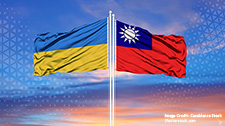The Russia-India-China Trilateral After Ukraine: Will Beijing Take the Lead?

Jagannath Panda and Wooyeal Paik
Introduction:
At the Shanghai Cooperation Organization (SCO) foreign ministers’ meeting in late July, which included China, India, Kazakhstan, Kyrgyzstan, Pakistan, Russia, Tajikistan, and Uzbekistan, People’s Republic of China (PRC) State Councilor and Foreign Minister Wang Yi exhorted member states to uphold the “Shanghai Spirit” (上海精神, Shanghai Jingshen) of mutual trust, mutual benefit, equality, mutual consultations, diverse civilizations, and the pursuit of common development (Gov.cn, July 29). He then presented a “five-point proposal” for building an SCO community “with a shared future” (CGTN, July 30). In doing so, Wang echoed President Xi Jinping’s call in his four-point proposal at the BRICS (Brazil-Russia-India-China-South Africa) summit in June —albeit via a rather elemental poetic allegory of fire, wind, and water –to embark on a “righteous course” toward a shared global future premised on inclusive, comprehensive and close win-win cooperation (Qiushi, June 24). BRICS already has a “Plus” mechanism and is mulling an expansion to include “like-minded” partners.
You can read the full article on The Jamestown Foundation’s website.
Related Publications
-
Could India’s relationship with China change under the new Modi government?
As the Indian Prime Minister Narendra Modi forms a new government for the consecutive third time after the BJP-led National Democratic Alliance (NDA) coalition secured a comfortable majority in the […]
-
To What Extent is China a ‘Security Threat’?
The current international order, led by the United States, is undergoing phenomenal political, economic, and security changes that will decide whether the order will continue as it is, or a […]
-
Positive Paranoia: Chinese Interpretations of Indo-Pacific Geopolitics
This Focus Asia paper seeks to interpret Chinese narratives on Indo-Pacific geopolitics by reviewing Chinese state media and scholarly opinions on Indo-Pacific geopolitics. For this purpose, the paper also examines […]
-
Not Drawing a Parallel. Ukraine and Taiwan: An Indian Perspective
Russia’s war against Ukraine has not only had economic, diplomatic, and geopolitical repercussions, but also exaggerated the fear of accelerated conflicts in the Indo-Pacific, a region with several unresolved conflicts […]
-
Needed, a Framework to Protect Undersea Cables
In the data-driven world we live in, submarine cables are the arteries that connect nation-states and their people in literally every human activity, including trade, commerce, entertainment, and social interactions. […]




